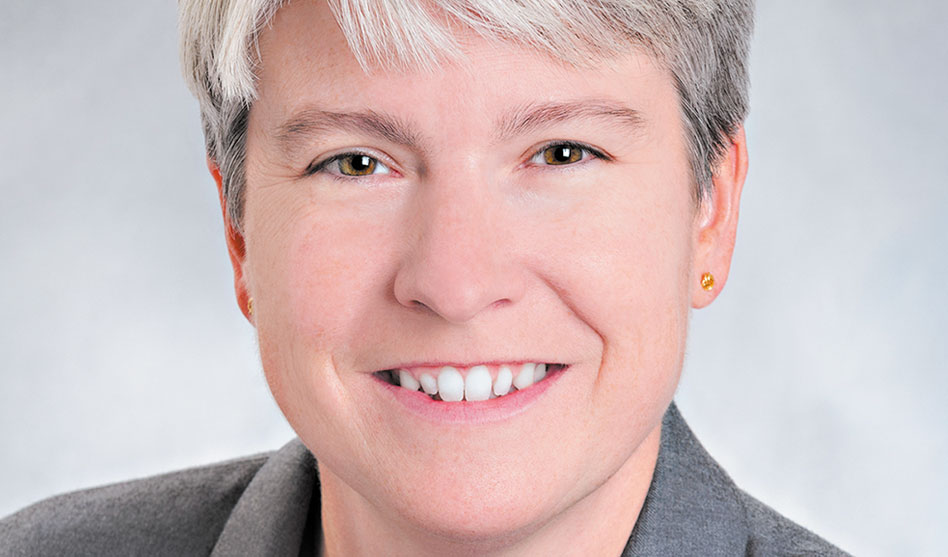Polly Crozier
Non-bio mom vs. sperm donor case is a ‘call to action’
 An Oklahoma judge has ruled that a married, nonbiological mom has no parental rights to the child she and her wife created and were raising together, but the couple’s sperm donor does. The case shows both why LGBTQ families need to take extra steps to protect themselves, and why there is a critical need for reform of parentage law across the country.
An Oklahoma judge has ruled that a married, nonbiological mom has no parental rights to the child she and her wife created and were raising together, but the couple’s sperm donor does. The case shows both why LGBTQ families need to take extra steps to protect themselves, and why there is a critical need for reform of parentage law across the country.
Kris Williams and Rebekah Wilson married in 2019 and had a son later that year with the help of Harlan Vaughn, a gay man who agreed to be their sperm donor, court documents say. Wilson carried the child, and both women’s names were placed on his birth certificate. The child was given Williams’ last name, and the two women jointly parented him for two years.
Wilson and Williams wanted their child to know his donor, however, as they had heard from other donor-conceived people that this was important to them. They, therefore, let Vaughn meet the child and spend time with him.
In December 2021, Wilson filed for divorce, claiming there were no children “of” the marriage but that Vaughn is the father to the one child born during the marriage. At the same time, she obtained a Victim Protection Order against Williams, alleging domestic abuse and banning Williams from contact with Wilson or their son for five years.
Regardless of the allegations there — which Williams has denied but that are not available to the public — that is a separate matter from whether Williams is a legal parent.

District Court Judge Lynne McGuire
Vaughn also filed a motion in 2022 to establish his parental rights, and, on Feb. 13, 2023, Oklahoma County District Court Judge Lynne McGuire ruled in his favor, denying that Williams is the child’s parent.
The ruling explained that “The Uniform Parentage Act that Oklahoma adopted was enacted in 2006 and does not take into account same-sex marriage, and there is no presumption that the wife of the mother is automatically the presumed parent of a child born during the marriage.”
Polly Crozier, director of family advocacy at LGBTQ legal organization GLAD, told me, “This case highlights the vulnerabilities LGBTQ+ families and their children still live with. Like all family law matters, this story is complex, but the court’s conclusions are deeply concerning on several fronts.”
The case hinges on whether same-sex married couples have the right to the presumption of parentage, the legal principle long applied to heterosexual couples that any child born within a marriage is presumed to be the child of both spouses.
Crozier observed that McGuire “disregarded the marital presumption of parentage that should have applied in this situation, finding that the presumption does not apply to LGBTQ spouses. The judge’s refusal to apply Oklahoma’s parentage statutes to this child because the decades-old law uses gendered language runs contrary to constitutional principles.”
These principles, she explained, were articulated in the U.S. Supreme Court rulings Obergefell v. Hodges, which established nationwide marriage equality, and Pavan v. Smith, which said both parents in a same-sex couple have the right to be on their children’s birth certificates.
“Those decisions affirmed that all married people should be treated equally and have equal access to the rights and responsibilities of marriage, including the marital presumption of parentage,” Crozier said.
Despite those rulings, LGBTQ legal advocates have long advised that because not all states may honor that marital presumption for same-sex couples, even married nonbiological/nongestational parents who are on their children’s birth certificates — an ability based on the marital presumption — should also get a co-parent/second-parent adoption, court order of parentage or the equivalent.
Unlike birth certificates, these other actions legally establish — and don’t just record — a relationship between the child and the parent and are guaranteed “full faith and credit” in all states.
Williams did not get a co-parent adoption, however. Because she could have pursued one but chose not to, McGuire said in the ruling, that counted against her claim.
Williams’ attorney, Robyn Hopkins, has told the media that they will appeal the decision.
“Beyond the heartbreaking implications for this child, whose relationship with one of their parents has now been legally severed, this case should be a call to action,” Crozier said. “States must ensure their parentage laws are updated and inclusive of LGBTQ families and their children, and there’s a model for doing so — the Uniform Parentage Act of 2017.”
Oklahoma’s parentage laws, like those in 24 other states, are based on the Uniform Parentage Act, model parentage legislation developed by the Uniform Law Commission, a non-partisan body of state lawmakers, judges, scholars, and lawyers. The UPA was first developed in 1973, then updated in 2002 to expand ways of determining legal parentage for children born through assisted reproduction and again in 2017 to ensure that state parentage laws remain constitutional by providing equality and paths to parentage for LGBTQ families, among other changes.
Seven states (California, Colorado, Connecticut, Maine, Rhode Island, Vermont and Washington) have adopted the 2017 UPA or substantially similar legislation. Hawaii, Kansas and Massachusetts have introduced bills this session to do so. New Hampshire and New York have also adopted some similar provisions.
Oklahoma’s parentage laws, however, and those of 10 other states — including Texas — are still based on the 2002 UPA; many other states are further behind.
Crozer stressed, “This case is also a painful reminder that LGBTQ+ families still need to make sure that they do everything they can to protect their children, including completing co-parent adoptions.”
She recommended that LGBTQ parents consult the “What LGBTQ+ Families Need to Know” guide (glad.org/post/faq-protect-your-family) created by GLAD, NCLR, COLAGE and Family Equality “to help families understand what they can do now to protect their children and their families, while we continue to advocate for updated parentage laws across the country.”
Dana Rudolph is the founder and publisher of Mombian (mombian.com), a GLAAD Media Award-winning blog and resource directory, with a searchable database of 1000+ LGBTQ family books and more.













I am in a similar situation with my ex partner. I wish we would have more resources available to us.